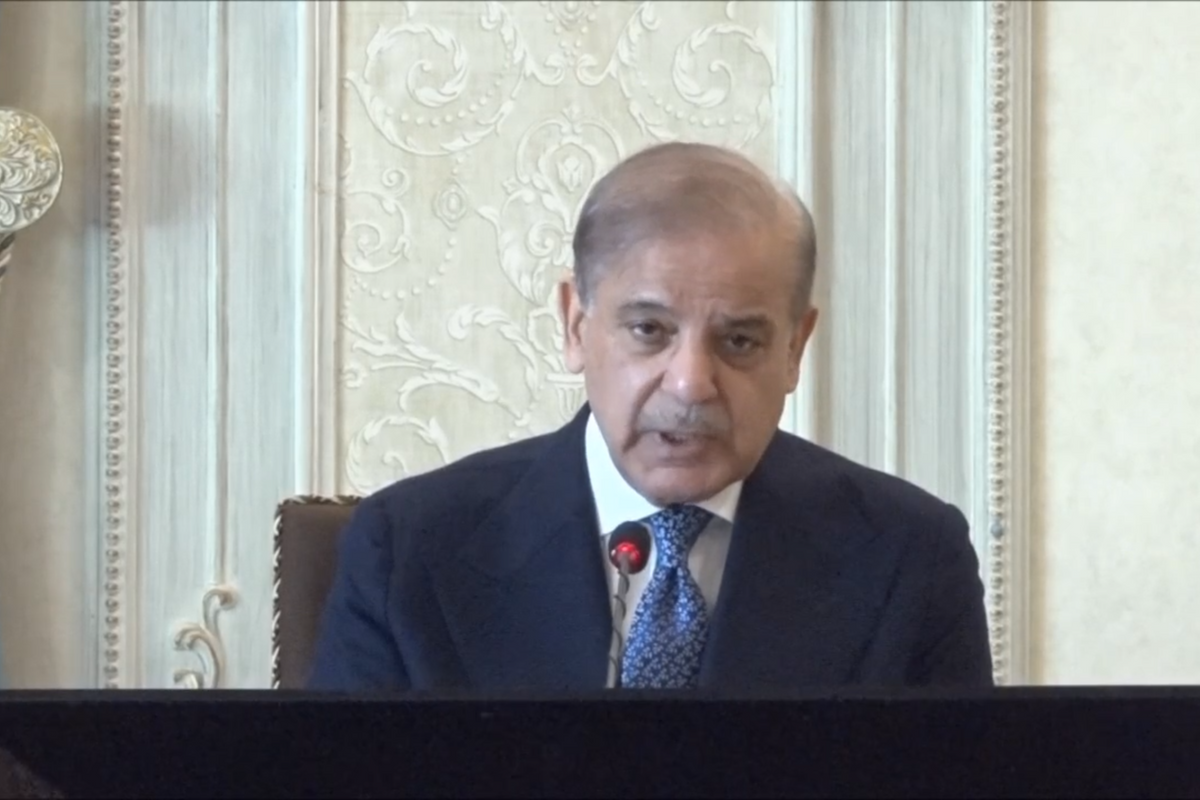Pakistan summons top nuclear body amid escalation with India
'It is soft nuclear signal but also well in line with Pakistan's nuclear doctrine of first use,' says analyst

Pakistan targets Indian bases amid escalating conflict over Kashmir
Pakistan says responding to missile attacks by Indian jets
India strikes were in retaliation for last month's attack on Hindu tourists in Kashmir, says Delhi
Pakistan's Prime Minister Shehbaz Sharif convened its National Command Authority—the top body overseeing nuclear weapons—on Saturday following its military operation targeting Indian bases, including a reported BrahMos missile storage site in northern India.
The move raised alarm among analysts, with Asfandyar Mir, senior fellow for South Asia at the Stimson Center, warning:
"It is a soft nuclear signal but also well in line with Pakistan's nuclear doctrine of first use and realistically reflective of where we are on the escalation ladder—which is pretty high up, after multiple duels between both sides, and also lacking in precedent."
'Test for International Community'
Planning Minister Ahsan Iqbal emphasized the gravity of the situation in a broadcast interview:
“We would hate to see that (nuclear) threshold being breached. This escalation is a test for the international community.”
Worst fighting in 3 decades
The latest clashes mark the most intense fighting between India and Pakistan in nearly 30 years.
Indian forces reported Pakistani drones and other munitions targeting its western border, while the Indian Army said five civilians were killed in Jammu in Saturday’s attacks.
Explosions were also reported in Amritsar, Srinagar, and Jammu.
India strikes first, Pakistan retaliates
According to Pakistan’s military, India initially launched missile strikes on three air bases: Nur Khan in Rawalpindi (near Islamabad), the Murid base, and Shorkot base in Punjab. Pakistan claims most missiles were intercepted and said no air assets were damaged.
Pakistan’s military response—dubbed Operation Bunyanun Marsoos, meaning “a firm, united structure” in Arabic—targeted multiple sites, including:
- BrahMos missile storage site near Beas
- Pathankot Airbase in Indian Punjab
- Udhampur Air Force Station in Indian-administered Kashmir
US and G7 urge restraint
Amid fears of nuclear escalation, U.S. Secretary of State Marco Rubio called Pakistan’s Army Chief General Asim Munir, urging de-escalation and offering U.S. support for dialogue.
The G7 nations echoed this call on Friday, urging “maximum restraint” and direct diplomacy between the two nuclear-armed states.
Pakistan denies involvement in Kashmir attack
In a televised address, Pakistan military spokesperson Lt. Gen. Ahmed Sharif Chaudhry rejected India’s claim that Pakistan was behind the April 22 attack in Pahalgam that killed 26 Indian tourists.
Cyber front expands conflict
Separately, Indian security sources reported a major cyberattack on Maharashtra’s state electricity grid, allegedly carried out by Pakistani actors.
The attack led to widespread power outages and compromised over a dozen government and defence-linked websites, including the BJP’s official site, the UIDAI, Hindustan Aeronautics Limited, and Indian Air Force data repositories.
Kashmir flashpoint returns to fore
India said its strikes were in retaliation for the Kashmir tourist attack. Pakistan has denied responsibility and called for an international investigation. The escalation has since involved missile strikes, cross-border shelling, and widespread drone use from both sides.
With both countries showing no signs of backing down, the international community fears the confrontation could spiral beyond conventional warfare.










Comments
See what people are discussing